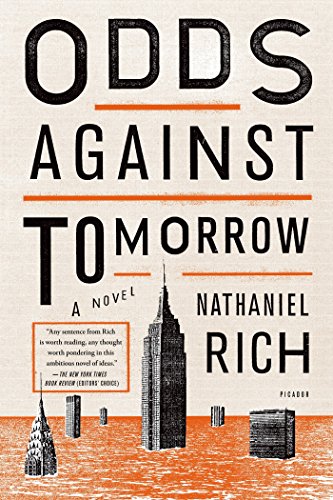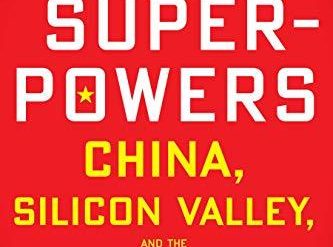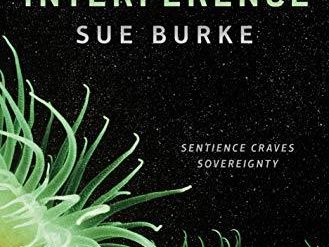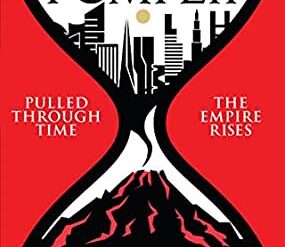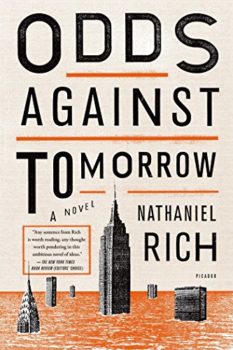
It’s hard not to feel at least a little like Mitchell Zukor. From an early age, Mitchell has been obsessed with disaster. Not run-of-the-mill personal disaster such as getting shot down for a date or getting rejected on a college application, but real, honest-to-God catastrophe. An asteroid crashes into Earth. A hemorrhagic fever pandemic stalks the planet. The Yellowstone supervolcano erupts. That’s the sort of disaster that keeps Mitchell up at night. But unlike everybody else in the world, Mitchell Zukor is a mathematic genius and can actually calculate the odds that any one or all of these events might actually happen. And early in Nathaniel Rich‘s curious novel about obsession, Odds Against Tomorrow, Mitchell lucks into a job where he can do this sort of thing professionally.
Estimated reading time: 4 minutes
A novel about obsession and natural disaster
In his new job at FutureWorld, Mitchell’s obsessive nature translates into the sort of passion that captivates clients. “He was on the vanguard of a new industry—nightmare analysis—and he was proud of it, too. He was a fear professional now.” Meeting with the most senior executives at major multinational corporations, he would relate his mathematically grounded fears that the sky is going to fall in. “Every single year, in other words, there was a ten percent chance that the species would extinguish itself. He had no great advice to offer his clients about this fact. He just wanted them to understand the likelihood that they would be incinerated shortly. ‘You won’t be able to say no one warned you,’ he said.”
Odds Against Tomorrow by Nathaniel Rich (2013) 317 pages ★★★★☆
Making money by fantasizing about catastrophe
So, why would these titans of industry and commerce even let this sniveling, latter-day Cassandra in the door? It turns out that a very clever lobbyist for a New York-based multinational had managed to slip a seemingly innocent provision into a bill in the state legislature. That provision indemnifies any corporation from legal action in the case of any natural disaster if only the company takes steps to protect itself. And it may legally do so simply by paying a firm such as FutureWorld to advise it about the risks. Which means that Mitchell and his employers are now in a position to make a great deal of money for doing exactly what he most enjoys: fantasizing about catastrophe.
Surprise! A natural disaster turns out to be . . . disastrous
Then catastrophe actually strikes New York. A massive hurricane rushes up the Atlantic Coast and floods the city. Just exactly as Mitchell has told his clients might happen. And this is not your average hundred-year flood, or five-hundred-year flood. It’s the Big Kahuna. The whole city is under tens of feet of water. Thousands, maybe tens of thousands, die. Millions become refugees, testing the ability of towns and cities far and wide to absorb them.
So, Odds Against Tomorrow is a dystopian novel of sorts. But it’s mostly about obsession. And Mitchell isn’t obsessive just about disaster. He fixates on young women, first one, then another, to the point at which at least one reviewer describes the book as a love story. But it’s not that. It’s just a novel about obsession. And, yes, it’s very funny.
For related reading
Like Odds Against Tomorrow, Kim Stanley Robinson’s novel, 2140, portrays New York City under water, although under very different circumstances. My review is at A grim but hopeful view of New York underwater in 2140.
For more good reading, check out:
- These novels won both Hugo and Nebula Awards
- The ultimate guide to the all-time best science fiction novels
- 10 top science fiction novels
- The top 10 dystopian novels
- Ten new science fiction authors worth reading now
And you can always find my most popular reviews, and the most recent ones, on the Home Page.

